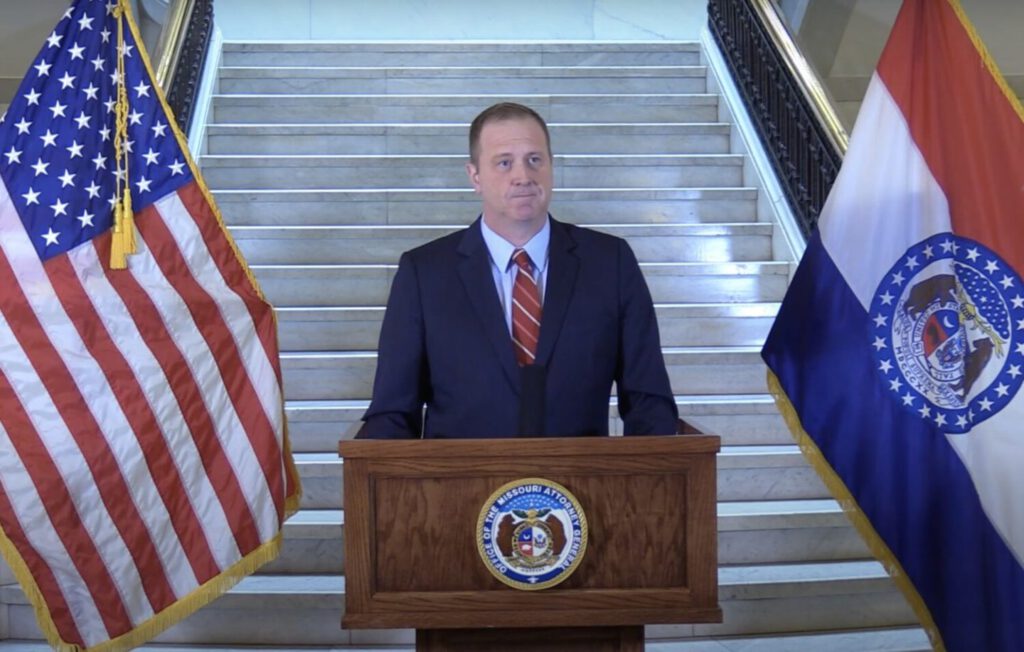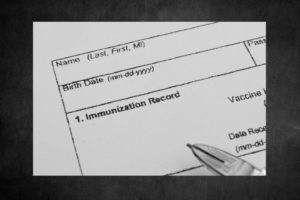Missouri Attorney General Eric Schmitt has to sue to obtain public records. What chance do ordinary citizens have?
The attorney general of the Show-Me State can’t get the Missouri School Boards’ Association to show him open records.
That’s the assertion in a lawsuit filed by Missouri Attorney General Eric…

The attorney general of the Show-Me State can’t get the Missouri School Boards’ Association to show him open records.
That’s the assertion in a lawsuit filed by Missouri Attorney General Eric Schmitt against the MSBA this week – which, as national Sunshine Week, pointedly shines a light on openness in government.
Schmitt’s office, according to its press release, had requested MSBA records regarding “the October 4, 2021 memo from the Biden administration and National School Boards Association that designated concerned parents who show up to school board meetings as ‘domestic terrorists’ and called for FBI surveillance of those parents.”
Schmitt also had asked for “documents related to MSBA guidance on critical race theory, mask mandates, and IEP meeting policies” in which parents and schools hash out special-education students’ Individualized Education Programs.
The MSBA failed to respond to the Sunshine Law requests, the AG’s office says, adding, “At every turn, we’ve been stonewalled.” Schmitt’s office called the documents in question “records that the public and particularly parents of children in Missouri’s schools have a right to see.”
An attorney for the MSBA told a media outlet that Schmitt’s lawsuit is “inappropriate,” and that “no attorney general has ever sued a not-for-profit entity for violating the sunshine law,” adding that “not-for-profit entities everywhere should be terrified.”
But should they be? Schmitt maintains that the MSBA isn’t your run-of-the-mill charity, but instead is a quasi-public governmental body subject to requirements of the state’s Sunshine Law.
All this begs the question: If the state’s top law enforcement officer can’t get access to open records, what chance do ordinary citizens or journalists have?
“That’s a good question,” says Patrick Ishmael, director of government accountability for the Show-Me Institute, a market-driven policy think tank. Starting last June, Ishmael says, the institute asked 2,800 schools and districts for information on their teaching of racial concepts. He says the entities’ resulting misinformation, nonresponsive answers and their low response rate – which he estimated at roughly 50% – could give rise to lawsuits of their own.
Indeed, Schmitt also sued Springfield Public Schools in November over alleged Sunshine Law violations after Critical Race Theory document requests from his office, a state representative, and the Show-Me Institute.
Ishmael said non-compliant local government officials seem to rely on the fact that not everyone can sue for open records like the attorney general can, and will just walk away.
Schmitt’s lawsuit against the Missouri School Boards’ Association stems from his curiosity about the state organization’s involvement in the National School Boards Association’s infamous letter to the Biden administration last year – the one that compared parents’ anger at Critical Race Theory to “domestic terrorism.”
The lawsuit alleges “MSBA was aware weeks in advance of the NSBA’s plans to send a letter to President Biden. … MSBA initially agreed with NSBA’s letter. MSBA retweeted NSBA’s announcement that it asked the Biden administration for ‘federal assistance.’”
Schmitt also is among 14 attorneys general nationwide who are suing the Biden administration for likewise failing to respond to Freedom of Information Act requests for information on the U.S. Department of Justice’s decision to surveil concerned parents. After that NSBA letter in September, U.S. Attorney General Merrick Garland on Oct. 4 called for the FBI and other federal agents to monitor parents’ activities in local school boards.



